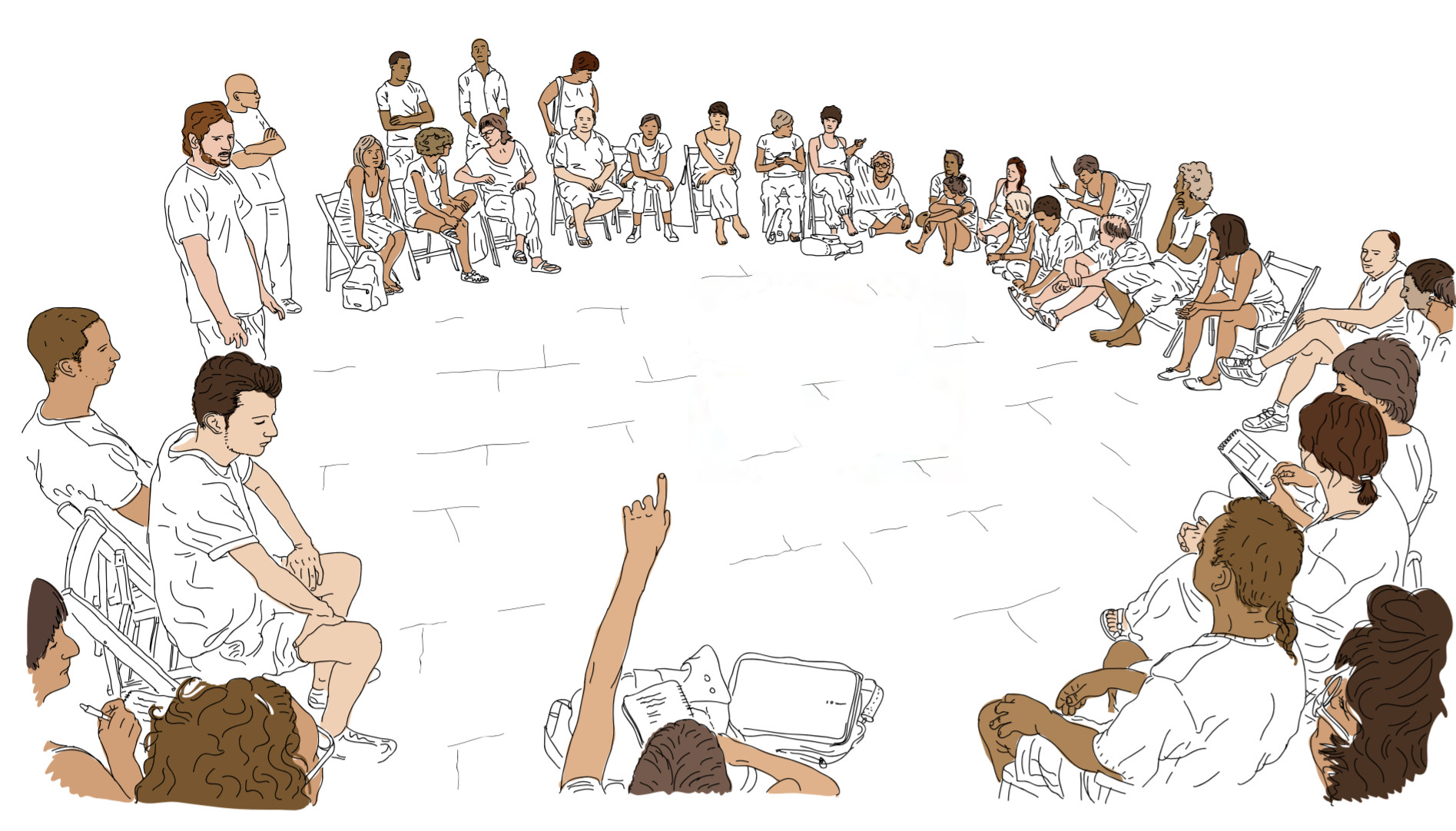Crianza Mutua Colombia
Crianza Mutua Colombia
Is a network process that take place in Colombia. It seeks to identify, document and connect groups through communal webs which are actively dismantling hierarchies in everyday life, putting principles of sufficiency into practice and constructing and extending their autonomy from the market and the State.
In detail
Crianza Mutua1) is an initiative
- to identify groups that have broken with the dominant regime and taken a new path;
- to document their experience,
- to facilitate their interaction to learn from each other, and
We will invite “entramados comunitarios”2) that are already living out of the dominant rules. We think that a new world has already been born with them. They are advancing in the process of dismantling all hierarchies, assuming the principle of sufficiency and constructing autonomy. They are actively resisting all racist, sexist, statist and violent attitudes.
Two or more people, who have a practical arrangement to act together, constitute an “entramado comunitario”. They share motives, rather than goals, to be together –for sheer survival or in the name of old ideals. They may or may not be part of collectives, groups, organizations, communities, or social movements, but they are expressions of ‘societies in movement’ that currently characterize Latin America.
Affection and friendship constitutes the glue that nurtures the entramados. It is not mere ‘sentiment,’ but ways of relating to each other that have become political categories. The entramados can be seen as the cells of a new society.
We include entramados which:
- Have been created and act by their own accord. The entramados could have been born by the initiative of one person, even by someone who does not belong to the entramado, but those who constitute it are there by their autonomous decision and shared motives.
- Dissolve, in their concrete practices, any hierarchy in the relations between those belonging to the entramado and in their interaction with other peoples or groups.
- Their basic attitude and action is focused in taking care of life, adopting behaviors that are respectful to Mother Earth and all living beings.
- Openly challenge all forms of racism and sexism, with their attitudes and behavior within the entramado and in its surroundings.
- Break with dependencies on the market and the State, through the construction of autonomy and joyous creativity. The rupture is never complete, not even in the sphere of the everyday life from which the entramado emerges.
- Avoid shaping their activities as commodities and try to reduce production and consumption of commodities in all areas of everyday life.
In sum, we will invite entramados which:
- tend to suppress hierarchies in everyday activity—which implies dissolving power, command, and control structures though forms of coordination are maintained and legitimate hierarchies respected;
- adopt in practice the principle of sufficiency, though they might not call it by that name, which means they try to have and use what is enough (sufficient) to live well3); and
- construct autonomy in at least one sphere of everyday life, but tend naturally to extend it to other spheres without looking for autarky4).
